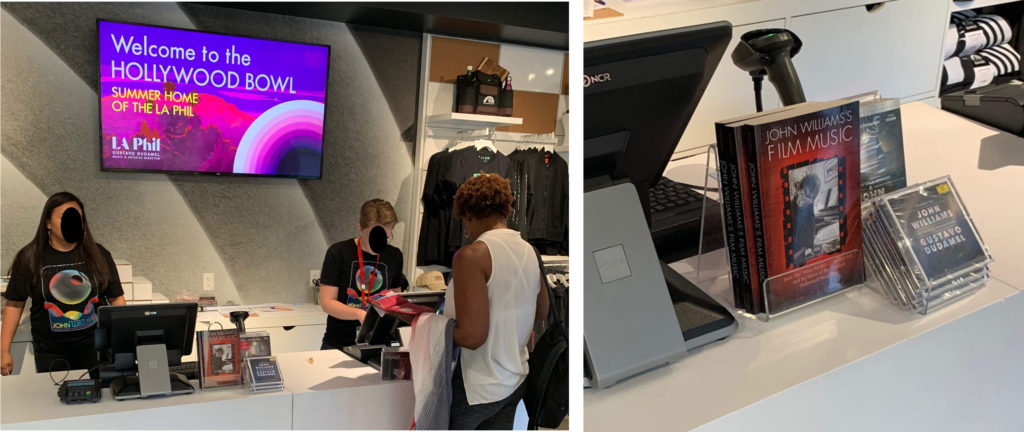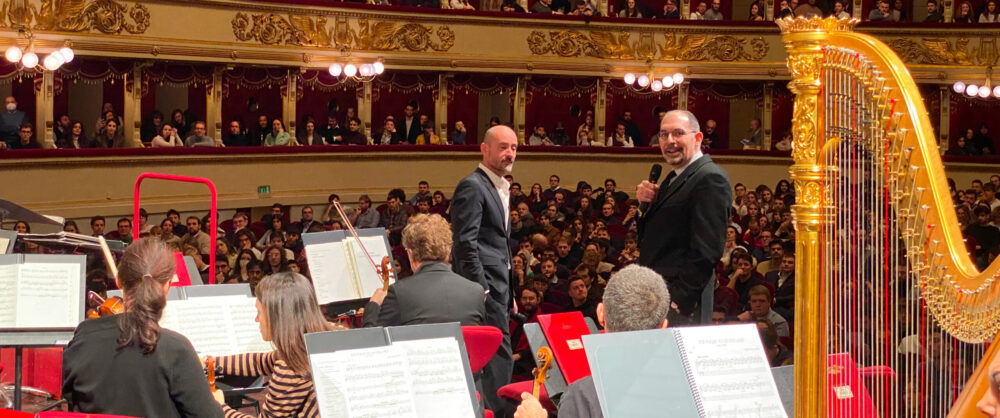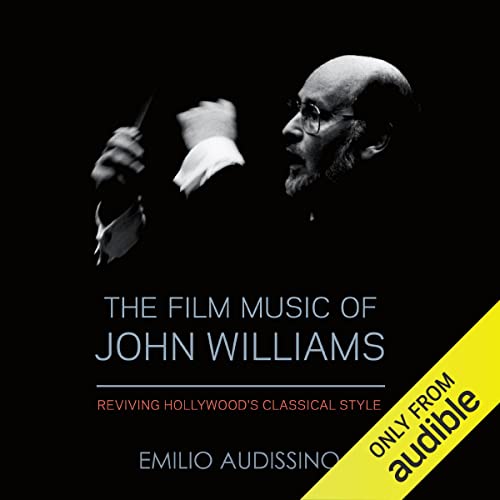Reviving Hollywood’s Classical Style
Emilio Audissino, 2014 / 2021
REVISED, UPDATED, AND EXPANDED EDITION
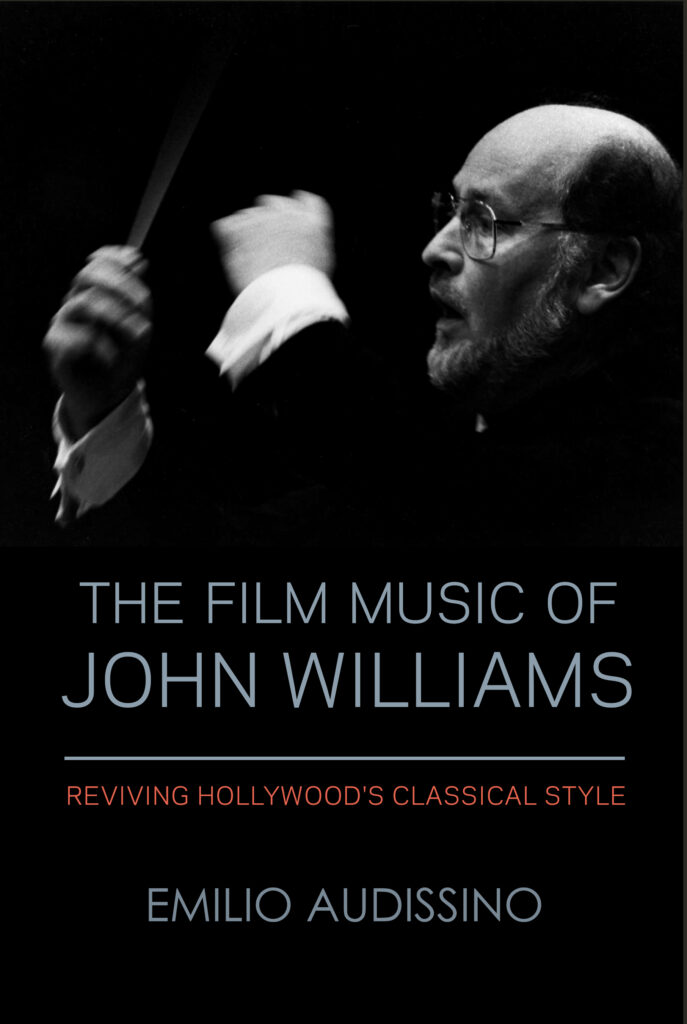
ADDITIONAL NEW CHAPTER ON DRACULA (1979)
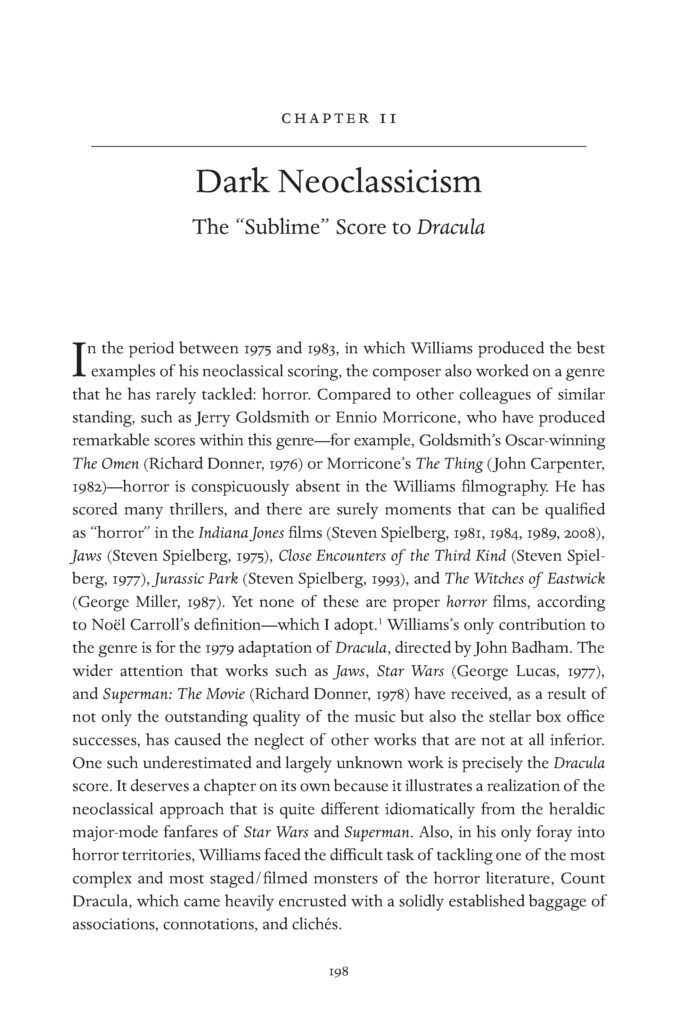
From the triumphant “Main Title” in Star Wars to the ominous bass line of Jaws, John Williams has penned some of the most unforgettable film scores—while netting more than fifty Academy Award nominations, the second-most Oscar-nominated person after Walt Disney. Yet despite such critical acclaim and prestige, this is the first book in English on Williams’s work and career.
Combining accessible writing with thorough scholarship, and rigorous historical accounts with insightful readings, the book explores why Williams is so important to the history of film music. Beginning with an overview of music from Hollywood’s Golden Age (1933–58), Emilio Audissino traces the turning points of Williams’s career and articulates how he revived the classical Hollywood musical style. This book charts each landmark of this musical restoration, with special attention to the scores for Jaws and Star Wars, Williams’s work as conductor of the Boston Pops Orchestra, and a full film/music analysis of Raiders of the Lost Ark. The result is a precise, enlightening definition of Williams’s “neoclassicism” and a grounded demonstration of his lasting importance, for both his compositions and his historical role in restoring part of the Hollywood tradition.
The 2021 updated and revised edition of Emilio Audissino’s groundbreaking volume takes stock of Williams’s creative process and achievements in music composition, including the most recent sequels in the film franchises that made him famous, and an entire new chapter devote to the music for the 1979 film Dracula. Audissino discusses Williams’s unique approach to writing by examining his neoclassical style in context, demonstrating how he revived and revised classical Hollywood music. This volume details Williams’s lasting impact on the industry and cements his legacy as one of the most important composers in movie history. A must for fans and film-music lovers alike.
Table of Contents:
Introduction to the Second Edition
Part I: The Rise and Demise of the Classical Hollywood Music Style
1. A Chronicle of Classical Hollywood Music
2. The Style of Classical Hollywood Music
3. The Modern Hollywood Music Style
Part II: John Williams and the Classical Hollywood Music Style
4. Star Wars: An Oppositional Score
5. The Saga of the Star Wars Music
6. Williams’s Early Years: Spotting the First Traces of Neoclassicism
7. Jaws: Williams’s Neoclassicism Floats Up to the Surface
8. Williams’s Neoclassicism: Style and Habits
9. Raiders of the Lost Ark Background: A Neoclassical Film
10. Raiders of the Lost Ark Analysis: The Return of Max Steiner
11. Dark Neoclassicism: The “Sublime” Score to Dracula
12. Reviving the Hollywood Music Classics beyond the Films
Closing Remarks on Neoclassicism and Today’s Hollywood Music
Appendix I. Williams’s Versatility for Spielberg (and Others)
Appendix II. Film and Television Scores
Glossary
Notes
Bibliography
Index
The 2014 edition:
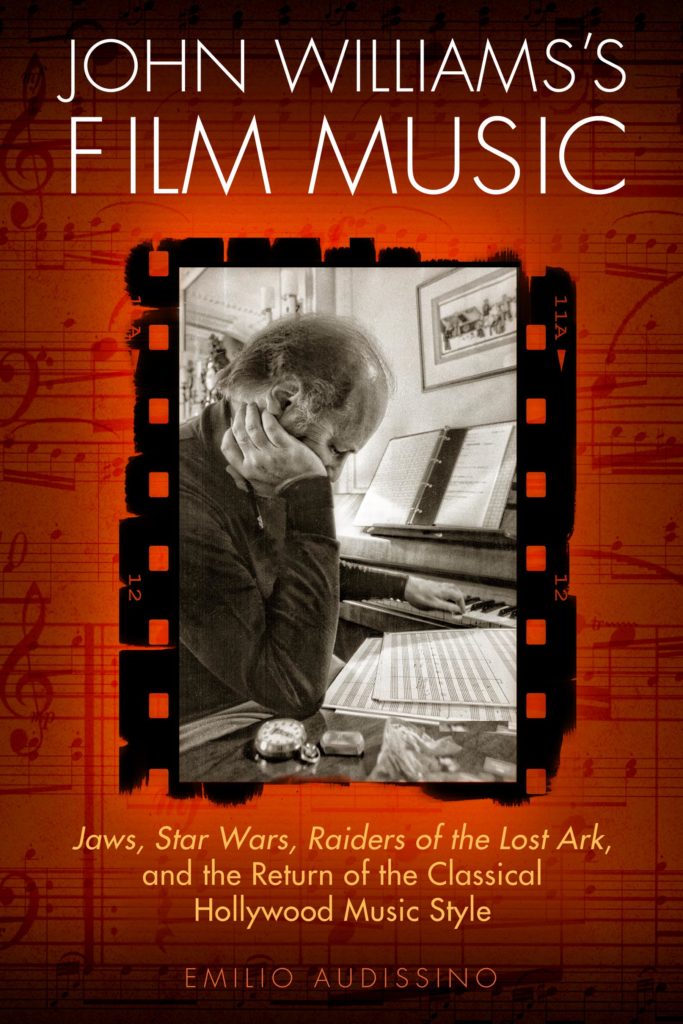
“Best Special Interest Books”, American Association of School Librarians
“Best Books for General Audiences”, Public Library Reviewers
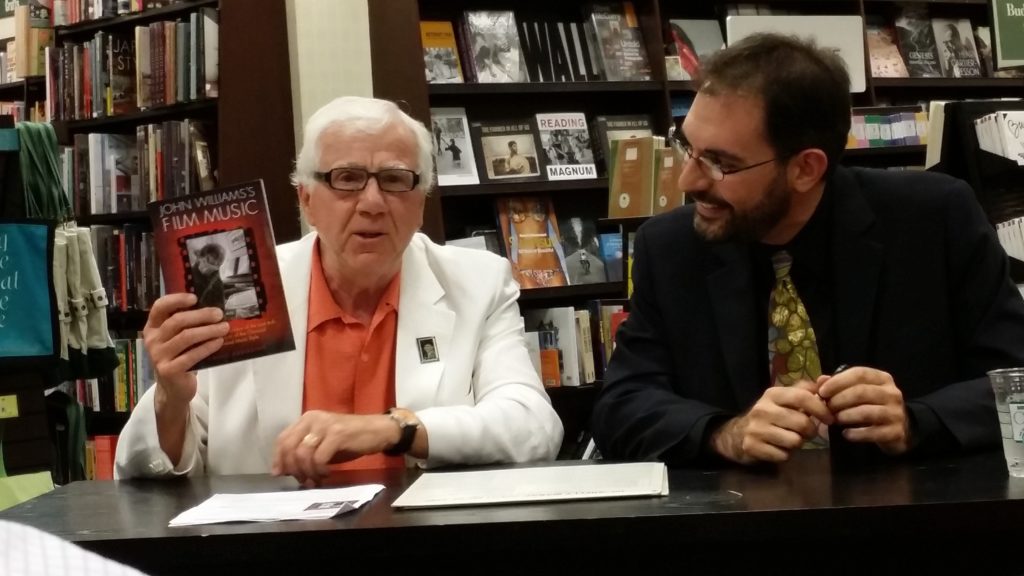
Read Audissino’s account of the importance of John Williams on The Epoch Times (26 July 2014)
“Emilio Audissino’s assiduously researched and thorough study is the perfect tribute to the composer in his 90th year, with both the life and the work examined in definitive fashion. Audissino places Williams in the classical tradition for his repeated use of a 19th-century symphony orchestra, and that is perfectly apposite: more people are likely to hear the glories of orchestral writing via John Williams’ contribution to a variety films than would ever visit a concert hall. It’s a very cherishable volume.”
BIll Forshaw, CDChoice.co.uk
“Emilio Audissino has described the “Star Wars” score and others by Williams as “neoclassical,” meaning that they draw on a sumptuously orchestrated style associated with such Central European émigrés as Steiner and Erich Wolfgang Korngold. “Neoclassical” is a better label than “neo-Romantic,” since Williams is so steeped in mid-twentieth-century influences: jazz, popular standards, Stravinsky, and Aaron Copland, among others.”
Alex Ross, “The Force Is still Strong with John Williams,” The New Yorker, 21 July 2020
“A much-needed work that captures the spirit and thinking of John Williams. Audissino is to be applauded for taking on such a large musical figure and for presenting him in the most wide-ranging manner. One gets the impression that he has tracked down every significant fact on Mr. Williams.”
Vincent LoBrutto, author of Sound-On-Film
“Highly recommended. An excellent book, with many, many insights not only into the music of John Williams but also the state of film scoring today—its aesthetics, the reasons film music today is such a departure from film music of the past, not to mention a real appreciation of the craft and art of John Williams and his milieu, who are often reviled by esthetes as being ‘too commercial.’ It is a pleasure to read a book that tries to capture not only the genius of John Williams, but his professionalism as well.”
Conrad Pope, film composer (My Week with Marilyn) and orchestrator (Star Wars: Episode III, Revenge of the Sith and The Hobbit: The Desolation of Smaug)
“Filling an important lacuna in film music studies, Emilio Audissino’s John Williams’s Film Music: “Jaws,” “Star Wars,” “Raiders of the Lost Ark,” and the Return of the Classical Hollywood Music Style is a compelling, well-researched investigation of John Williams’s role in the Hollywood film music industry. […] While the author does demonstrate a comprehensive understanding of Hollywood’s classic era as well as Williams’s position in New Hollywood over twenty years later, Audissino also reveals a thorough knowledge of music. His discussions of music examples, leitmotifs, and music history are both sensitive and accurate, and the connections he makes between Williams and previous composers and musical styles are astute. In fact, Audissino’s ability to address both film and music scholars in one accessible and engaging text is one of the study’s greatest strengths. With thorough consideration of historical, aesthetic, and theoretical elements, in both film and music, Audissino strikes a successful balance in his study, clearly addressing scholars in each discipline. […] Quoting Alfred Newman’s brother Lionel Newman, Audissino stresses that Williams’s “biggest contribution may have been to make people aware of the importance of music to films” (p. 203). Indeed, Audissino’s text is a testament to this statement, as it successfully informs and celebrates the influence of John Williams not only on Hollywood, but also on the moviegoing public as a whole. He offers a thorough investigation of the film composer’s neoclassic style, while bridging the gap between film and music studies, providing an important step forward in this blossoming field of scholarship.”
Paula Musegades, Notes, September 2015 (pp. 165-68)
“The impact Audissino’s work has had on the field is readily discernible. Williams scholarship has proliferated in the years since John Williams’s Film Music was published in 2014, and, within this growing literature, citations of Audissino’s groundbreaking work abound. […] John Williams’s Film Music marked an arrival point for scholarship on Williams […] Yet, at the same time, […] [it] also open[s] fresh avenues of research […] and also raise[s] larger intriguing questions for the broader field of film music studies […]. [An] essential reading for musicologists specializing in film, American studies, and twentieth- and twenty-first-century repertoires.”
Grace Edgar, Journal of Film Music, Spring 2021 (pp. 4-6)
“Emilio Audissino should be commended for his passion and research of such a stellar composer as John Williams.”
Larry Timm, author of The Soul of Cinema: An Appreciation of Film Music
Read Mark Richards’s full review on Film Music Notes
